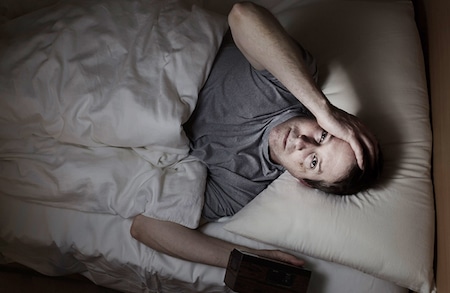Sleep apnea surgery is generally considered a last resort for treating obstructive sleep apnea (OSA) in Denver because there are less invasive, highly effective treatments available. Here are some key reasons why surgery is typically not the first option:
- Effectiveness of Non-Surgical Treatments: CPAP therapy and oral appliances have proven to be highly effective in managing sleep apnea for most patients. These treatments can keep the airway open during sleep without the need for invasive procedures.
- Risks and Complications: Surgical procedures for sleep apnea, such as uvulopalatopharyngoplasty (UPPP), maxillomandibular advancement (MMA), or bariatric surgery, carry inherent risks. These can include infections, bleeding, anesthesia complications, and long recovery periods. Additionally, surgery does not always guarantee complete resolution of sleep apnea.
- Side Effects: Surgery can lead to side effects such as difficulty swallowing, changes in speech, or chronic dry mouth. For some patients, these side effects may be more troubling than the symptoms of sleep apnea itself.
- Cost and Recovery Time: Sleep apnea surgery can be expensive, and recovery may be lengthy. It may require significant time off work or other activities, which can be a barrier for many people.
- Not Suitable for All Patients: Not all individuals are candidates for surgery. People with severe health conditions or those with certain anatomical features may not be suitable for surgical intervention.
- Possible Recurrent Symptoms: Even after surgery, some patients may experience a recurrence of sleep apnea, meaning they might still require CPAP therapy or another form of treatment to fully manage the condition.
While sleep apnea surgery is typically not recommended as a first-line treatment due to its risks, complications, and mixed success rates, it can still offer a solution for certain patients when other treatments have proven ineffective. Various surgical procedures aim to address the underlying causes of sleep apnea by improving airway patency. Below is an overview of some of the most common surgical options available for sleep apnea treatment, each with its unique approach and potential benefits.
Uvulopalatopharyngoplasty (UPPP)
The goal in this procedure is to make more room in your airway by removing tissue from several structures at the back of your throat. This includes the uvula, the dangling tissue at the back of your mouth, and the soft palate, the rear section of the roof of your mouth, which can obstruct your airway.
It seems like a promising approach, and that’s part of the reason why it’s the most commonly performed sleep apnea surgery. However, its success rate is low, about 50% of less in studies. Many surgeons offer slight variations on the process, and there are laser and radiofrequency alternatives, but there is not enough evidence to support that these alternatives are any more effective.
Maxillomandibular Advancement
This procedure also seeks to make your airways more spacious. But instead of trying to reduce crowding by removing “clutter,” in this procedure, the goal is to make your mouth bigger. Both your upper and lower jaws are broken apart, then secured with titanium plates and allowed to heal.
The benefit is that this surgery is almost 100% effective. The tradeoff is that this procedure is very invasive and requires a long recovery period. There are also some serious side effects. About 12-14% of patients experience permanent nerve damage, and up to 44% of patients may develop bite or jaw function problems. Broken plates can also occur, which can impact your healing, require supplemental procedures, and cause additional pain.
Nasal Surgeries
The nose is often a culprit in snoring, but less so in sleep apnea. Still, obstructions in the nasal airway can contribute to sleep apnea, so nasal surgeries are sometimes recommended. The most common targets of nasal surgery are the septum and the turbinates. The septum is the dividing structure in your nose, and if it’s off, it can lead to a narrow airway that is subject to blocking. The turbinates are filtering structures in your nose, but they can sometimes contribute to excess clogging of the nose.
Throat Surgeries
Tracheostomy is a 100% effective treatment option for sleep apnea, but it requires the creation of a hole in the throat that can serve as an alternate breathing tube. The quality of life side effects and high risk of surgical complications generally make this an unattractive treatment option.
The tongue is one of the most important structures for interfering with the airway. There are several approaches to reduce blockage by the tongue. Cutting away parts of the tongue, known variously as glossectomy or glossial advancement, is the simplest. A new approach that shows promise is hypoglossial stimulation when your body is implanted with what might be described as a “pacemaker” for your tongue, which stimulates it so it doesn’t relax and crowd the airway.
Hyoid advancement is surgery to relocate the hyoid bone to increase the size of the airway.
Find Treatment in Denver
If you’re struggling with sleep apnea and have found that traditional treatments aren’t enough, surgery might be an option worth considering. However, with potential risks and long recovery times, it’s important to explore all possible solutions before deciding on surgery.
Our Denver sleep apnea dentist, Dr. Kevin Berry, is here to help guide you through your treatment options, like CPAP alternatives. We can discuss the best path for your specific needs during a consultation. To learn more and schedule an appointment, call us today at (303) 691-0267. Let us help you find the most effective treatment to improve your sleep and overall health.
Self Screening: Do You Have Problems Sleeping?

The Epworth Sleepiness Scale
This self-administered test is used to determine your level of daytime sleepiness which can be caused by sleep apnea.



